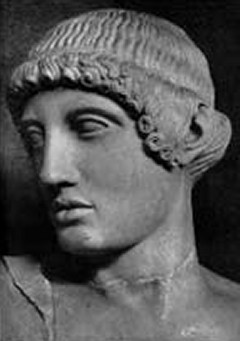
George Will, the world’s worst climate scientist, reminds us of a passage from Plato’s Gorgias as he once again ventures into climate science.  At least this time he isn’t confusing a work of actual fiction with actual non-fiction science.  You can read whatever he says at the link.  Here is relevant passage of the Gorgias:
Soc. Let me tell you then, Gorgias, what surprises me in your words; though I dare say that you may be right, and I may have understood your meaning. You say that you can make any man, who will learn of you, a rhetorician?
Gor. Yes.
Soc. Do you mean that you will teach him to gain the ears of the multitude on any subject, and this not by instruction but by persuasion?
Gor. Quite so.
Soc. You were saying, in fact, that the rhetorician will have, greater powers of persuasion than the physician even in a matter of health?
Gor. Yes, with the multitude-that is.
Soc. You mean to say, with the ignorant; for with those who know he cannot be supposed to have greater powers of persuasion.
Gor. Very true.
Soc. But if he is to have more power of persuasion than the physician, he will have greater power than he who knows?
Gor. Certainly.
Soc. Although he is not a physician:-is he?
Gor. No.
Soc. And he who is not a physician must, obviously, be ignorant of what the physician knows.
Gor. Clearly.
Soc. Then, when the rhetorician is more persuasive than the physician, the ignorant is more persuasive with the ignorant than he who has knowledge?-is not that the inference?
Gor. In the case supposed:-Yes.
Soc. And the same holds of the relation of rhetoric to all the other arts; the rhetorician need not know the truth about things; he has only to discover some way of persuading the ignorant that he has more knowledge than those who know?
Gor. Yes, Socrates, and is not this a great comfort?-not to have learned the other arts, but the art of rhetoric only, and yet to be in no way inferior to the professors of them?
Soc. Whether the rhetorician is or not inferior on this account is a question which we will hereafter examine if the enquiry is likely to be of any service to us; but I would rather begin by asking, whether he is as ignorant of the just and unjust, base and honourable, good and evil, as he is of medicine and the other arts; I mean to say, does he really know anything of what is good and evil, base or honourable, just or unjust in them; or has he only a way with the ignorant of persuading them that he not knowing is to be esteemed to know more about these things than some. one else who knows? Or must the pupil know these things and come to you knowing them before he can acquire the art of rhetoric? If he is ignorant, you who are the teacher of rhetoric will not teach him-it is not your business; but you will make him seem to the multitude to know them, when he does not know them; and seem to be a good man, when he is not. Or will you be unable to teach him rhetoric at all, unless he knows the truth of these things first? What is to be said about all this? By heavens, Gorgias, I wish that you would reveal to me the power of rhetoric, as you were saying that you would.
Can someone please send Mr.Will a copy of this book?
via Thinkprogress (where you can find a thorough discussion of just how bad Will’s piece was).
For me, the highlight of Will’s piece was his reference to “climate Cassandras”.
I’m not sure if equating climatologists with the oracle of Greek myth who prophesied true things, yet was not believed, was a subconscious admission that he knows full well that they are in fact correct, which accidentally slipped into a column otherwise filled with deliberate disingenuousness, or merely evidence that George Will is just as poorly educated in classical literature as he is about climate science.
(P.S. your ThinkProgress link at the end leads instead to the picture of Gorgias.)
Goes with the theme of the piece that he uses evidence that proves the opposite of what he thinks it does. Oh well.
I think it would be fair to say that a doctor who, at best, is wrong about every diagnosis, and who, at worst, has intentionally misled all of his patients, would probably lose his medical license and be sued for malpractice. Likewise, climate scientists who, at best, have been incorrect in almost every prediction, and who, at worst, have manipulated data to prove their theories, can and should be dismissed. Pretending that all climate scientists are as well-meaning as physicians is disingenuous.
In addition to this nonsense, you’ve failed to mention that it was cold this winter.